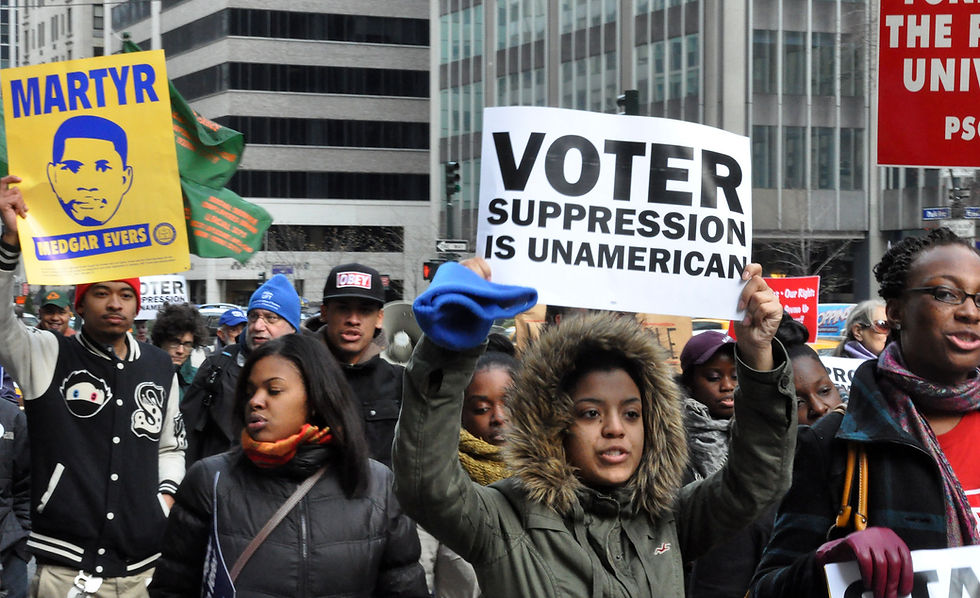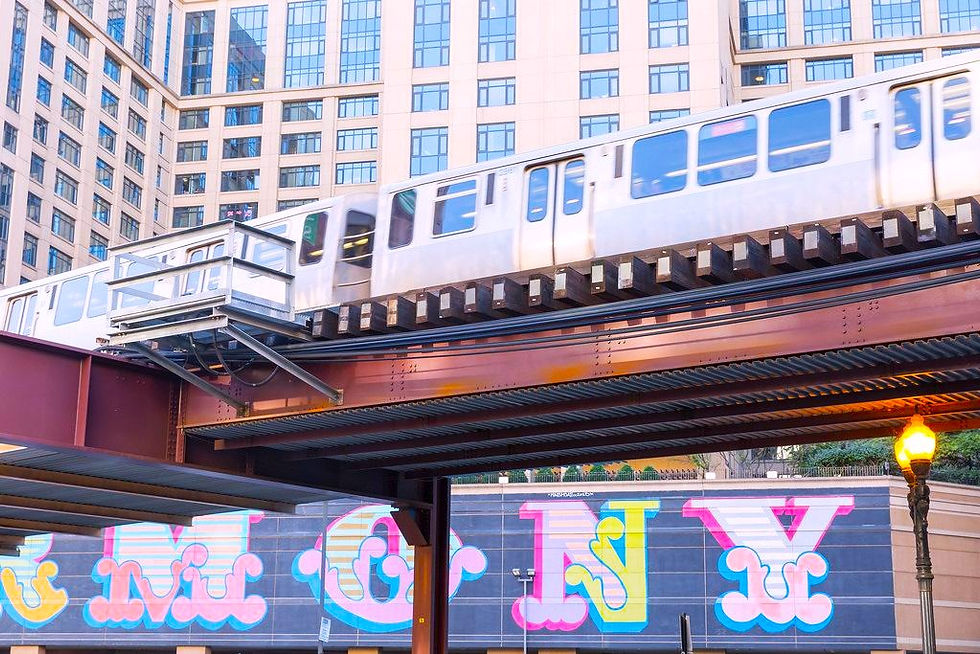EDITORIAL: The New Face of Voter Suppression - Digital Misinformation as the Poll Tax of Our Time
- Natalie Frank
- Aug 14, 2025
- 4 min read
Your right to vote is worthless if your reality has already been hacked
Natalie C. Frank, Ph.D August 14, 2025

s Michael Fleshman/flickr [CC BY-SA 2,0]
The fight for the right to vote in America has never been only about casting a ballot. It has always been about who controls the conditions under which citizens make that choice. In the Jim Crow era, the poll tax and literacy test were the main tools of suppression. Today the tools are sharper, more invisible, and far more effective. The cost of voting in 2025 is not paid in dollars or bureaucratic obstacles. It is paid in the alteration of reality itself.
The weapon being used in the instigation of voter suppression is digital misinformation. It is not the occasional false meme or someone's bad Facebook rant. It is a coordinated, AI-enhanced mountain of falsehoods, targeted to specific groups and individuals and designed to bypass your rational mind. It is deepfake videos targeted tagged and timed for maximum chaos. It is fake news sites that look and feel like legitimate journalism. It is search results bent by algorithmic bias. These tactics work, because the human brain is wired to believe what it sees, especially when it comes wrapped in the authority of technology, expertise and/or the appearance of hard journalism complete with supposed first hand quotes.
When you can't trust the information you access, you can't make an informed choice. That is not just a glitch. That is the whole point. Misinformation does not stop you from voting. It convinces you to vote in ways that serve someone else’s interests. It convinces you to mistrust the process entirely. It convinces you to stay home. The effect is the same as the poll taxes of the past: a democracy in name only, in which the outcome is decided long before Election Day.
The irony is that America’s legal protections against voter suppression have not caught up to this fast developing threat. The Voting Rights Act was written to address tangible barriers such as IDs, and district maps, not the psychological and technological ones that define modern politics. There is no law that says a candidate cannot fund an AI operation to generate thousands of false headlines targeting voters in swing states. There is no legal precedent for removing deepfake political ads from circulation in the crucial 72 hours before an election. The framework that truth is based on has been left unguarded.
This is not a partisan crisis. Every side has been guilty of digital manipulation, though some have invested far more heavily in it than others. The bigger issue is that the platforms hosting our political discussions, social media, video-sharing sites, and even AI search tools, profit enormously from outrage and engagement, views likes, follows etc. not accuracy. They are the overseers of the new voting sites, and they have no incentive to fix the the walls despite them being full of cracks. And given that the walls support the ceiling, if they collapse everything comes tumbling down.
If you think this sounds alarmist, consider how fast technology has evolved. In 2020, deepfake videos were novelties, easy to spot with careful viewing. By 2024, they were sophisticated enough to pass as authentic under casual examination, and millions of voters saw and shared them before fact-checkers could respond. By 2028, they will be indistinguishable from reality for the average viewer. Actually, at this point, many deep fakes already are. Once that threshold is crossed comprehensively, the very concepts of “proof," "facts," "truth" or" reality" starts to decompose.
What does it mean for a democracy when every fact can be questioned and every image is suspect? It means the contest for elections are no longer about getting votes. It is over facts and truth themselves. If you can convince enough people that the election is illegitimate, before or after it takes place, you do not need to change any ballots to win.
The old poll tax kept poor and minority voters away from the ballot box. The new poll tax keeps every voter trapped inside their own manipulated reality. It is cheaper, faster, and far more expansive than any specific law or ID requirement. It does not matter whether you live in Atlanta or Anchorage, red state or blue state. Your vulnerability is built into the information you access with the devices you use every day.
Addressing this problem will require a kind of political will we have not yet seen. Congress would need to treat deepfake political content with the same urgency it once treated election security after the hanging chads of the 2000 election. Platforms would need to accept responsibility for the accuracy of the information shown in search results based on their algorithm instead of hiding behind claims of neutrality. Voters themselves would need to develop automatic healthy skepticism, the way earlier generations learned to read between the lines of propaganda.
But here is the uncomfortable truth. Even if these reforms were implemented tomorrow, we would still be years behind the pace of technological change. AI will not wait for the slow process of legislation. Every month that passes without meaningful intervention sustaining reality is another month in which someone, somewhere, is refining the next generation of digital voter suppression.
This is not about nostalgia for some imagined golden age of political truth. Lies and propaganda have always been part of politics. The difference now is reach, speed, and targeted personalization. The lie you see on your phone is not necessarily the lie your neighbor sees. That pixelated false reality makes it nearly impossible to build a shared understanding of truth, which is the bedrock of any functioning democracy.
In the 1960s, civil rights leaders risked their lives to tear down the barriers that kept people from voting. In 2025, the barrier is inside our own heads. We may not notice it until the second we step into the voting booth, thinking we are making a free choice when, in fact, the choice may have already been made for us.
The right to vote is meaningless without the right to an undistorted reality. If we fail to defend that, we are not just potentially electing the worst candidate. We are losing the very idea of a government of the people, by the people and for the people.






